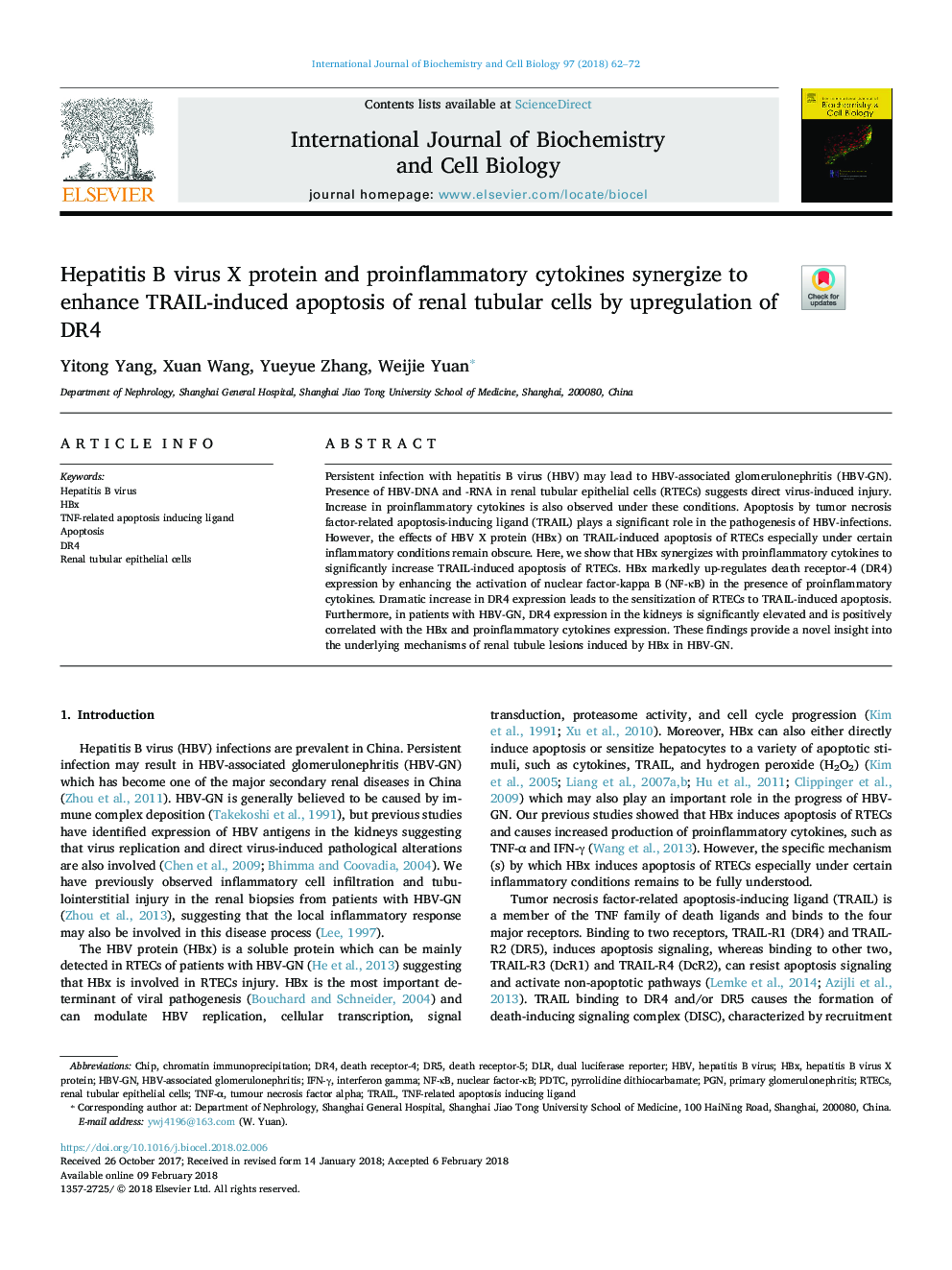| Article ID | Journal | Published Year | Pages | File Type |
|---|---|---|---|---|
| 8322024 | The International Journal of Biochemistry & Cell Biology | 2018 | 11 Pages |
Abstract
Persistent infection with hepatitis B virus (HBV) may lead to HBV-associated glomerulonephritis (HBV-GN). Presence of HBV-DNA and -RNA in renal tubular epithelial cells (RTECs) suggests direct virus-induced injury. Increase in proinflammatory cytokines is also observed under these conditions. Apoptosis by tumor necrosis factor-related apoptosis-inducing ligand (TRAIL) plays a significant role in the pathogenesis of HBV-infections. However, the effects of HBV X protein (HBx) on TRAIL-induced apoptosis of RTECs especially under certain inflammatory conditions remain obscure. Here, we show that HBx synergizes with proinflammatory cytokines to significantly increase TRAIL-induced apoptosis of RTECs. HBx markedly up-regulates death receptor-4 (DR4) expression by enhancing the activation of nuclear factor-kappa B (NF-κB) in the presence of proinflammatory cytokines. Dramatic increase in DR4 expression leads to the sensitization of RTECs to TRAIL-induced apoptosis. Furthermore, in patients with HBV-GN, DR4 expression in the kidneys is significantly elevated and is positively correlated with the HBx and proinflammatory cytokines expression. These findings provide a novel insight into the underlying mechanisms of renal tubule lesions induced by HBx in HBV-GN.
Keywords
Related Topics
Life Sciences
Biochemistry, Genetics and Molecular Biology
Biochemistry
Authors
Yitong Yang, Xuan Wang, Yueyue Zhang, Weijie Yuan,
